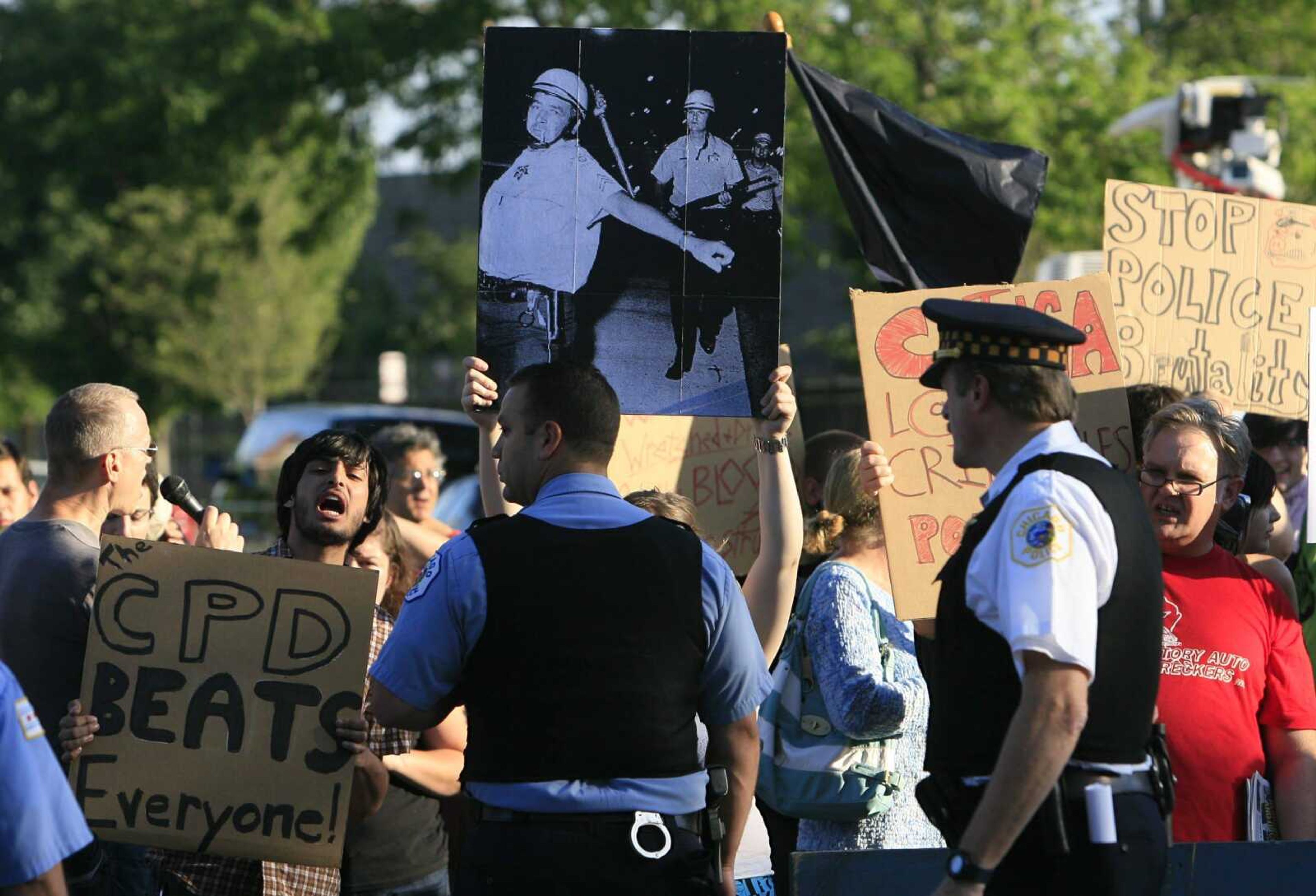Chicago cops from 1968 convention hold reunion
CHICAGO -- There was no tear gas anywhere, and some of those who showed up for a reunion of Chicago police officers who worked during the 1968 Democratic National Convention hung up their badges a long time ago. The former cops came recalled what the the world didn't see on television along with the images of police wading into crowds of protesters, knocking them down with flailing billy clubs...
CHICAGO -- There was no tear gas anywhere, and some of those who showed up for a reunion of Chicago police officers who worked during the 1968 Democratic National Convention hung up their badges a long time ago.
The former cops came recalled what the the world didn't see on television along with the images of police wading into crowds of protesters, knocking them down with flailing billy clubs.
They told of bags of urine and feces, and bricks that were thrown at them, the heavy glass ashtrays dropped on them from hotel windows high above, the nail-spiked rubber balls left behind their car tires.
And they dismissed any talk of a "police riot," speaking with pride about how they conducted themselves.
"We were doing what we were supposed to do," said John Murray, a 62-year-old retired detective. "No regrets."
On the other side of the street, protesters say all this talk about doing their job and blaming the rioting on the demonstrators amounts to a whitewash of history. They say the reunion organizers promoted the gathering on a website called Chicagoriotcops.com as a way to honor those who protected the city from "Marxist street thugs."
"The language makes it very clear that this is a celebration of violence, of brutality and an attempt to rewrite history," said Jose Martin, a member of Chicago Copwatch, which organized a march and a rally across the street from the Fraternal Order of Police lodge where the reunion was held.
Martin said he wasn't sure if there would still be a march had the reunion been simply advertised as a reunion, but he said that kind of language sealed the deal.
"It was too golden," he said.
G. Flint Taylor, a prominent civil rights attorney whose clients include former death row inmates who have sued alleging police torture, saw his participation as his duty.
"We have to constantly set the record straight, set the historical record straight," he said.
"This new generation, half don't know what happened," he said, surrounded by a few dozen protesters, many of whom were not yet born when the 1968 convention occurred.
That was one thing that even the former cops could agree to.
"I don't think the young kids could tell you who was even running for office (in 1968)," said retired detective, Tom Flanagan, 67.
The other thing everyone agreed on is that the now-gray or balding men who were on duty during the 1968 convention remain a source of fascination for those who lived through it or studied it.
"Did you beat up anybody famous?" a young woman who rode up to the officers on her bicycle asked Murray.
Murray just laughed.
Connect with the Southeast Missourian Newsroom:
For corrections to this story or other insights for the editor, click here. To submit a letter to the editor, click here. To learn about the Southeast Missourian’s AI Policy, click here.









